- A new survey by Ipsos for the World Economic Forum explores attitudes towards artificial intelligence (AI) in 28 countries around the world.
- The survey found that nearly two-thirds of adults expect products and services using AI will profoundly change their daily lives in the next 3-5 years.
- It also highlights differences between emerging and high-income economies.
A new survey by Ipsos for the World Economic Forum has found that 60% of adults around the world expect that products and services using AI will profoundly change their daily life in the next 3-5 years.
The same number also agree that AI products and services will make their life easier, but just half say they have more benefits than drawbacks. And, just 50% say they trust companies that use AI as much as they trust other companies.
“In order to trust artificial intelligence, people must know and understand exactly what AI is, what it’s doing, and its impact,” said Kay Firth-Butterfield, Head of Artificial Intelligence and Machine Learning at the World Economic Forum. “Leaders and companies must make transparent and trustworthy AI a priority as they implement this technology.
Impact of AI on daily life
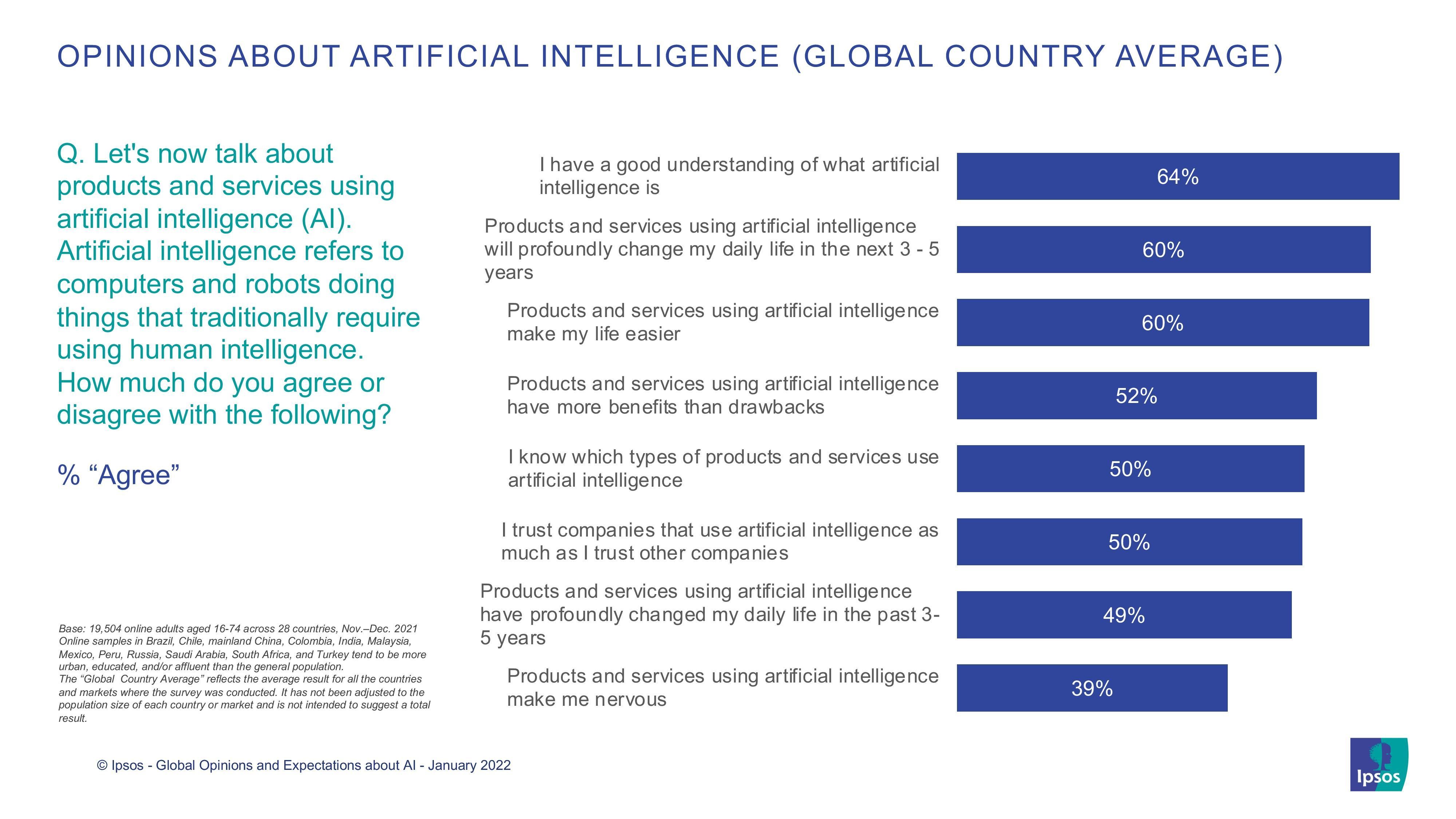 "lazy", :class=>"", :alt=>"Opinions about AI"}” use_picture=”true”>
"lazy", :class=>"", :alt=>"Opinions about AI"}” use_picture=”true”>
What people think about AI.
Image: Ipsos
Nearly two-thirds of people surveyed said they have a good understanding of what artificial intelligence is.
Some 60% of people also think that products and services using AI will make their lives easier, with 60% also expecting AI to profoundly change their daily life in the coming years.
The areas set to see the biggest changes are education, safety and employment.
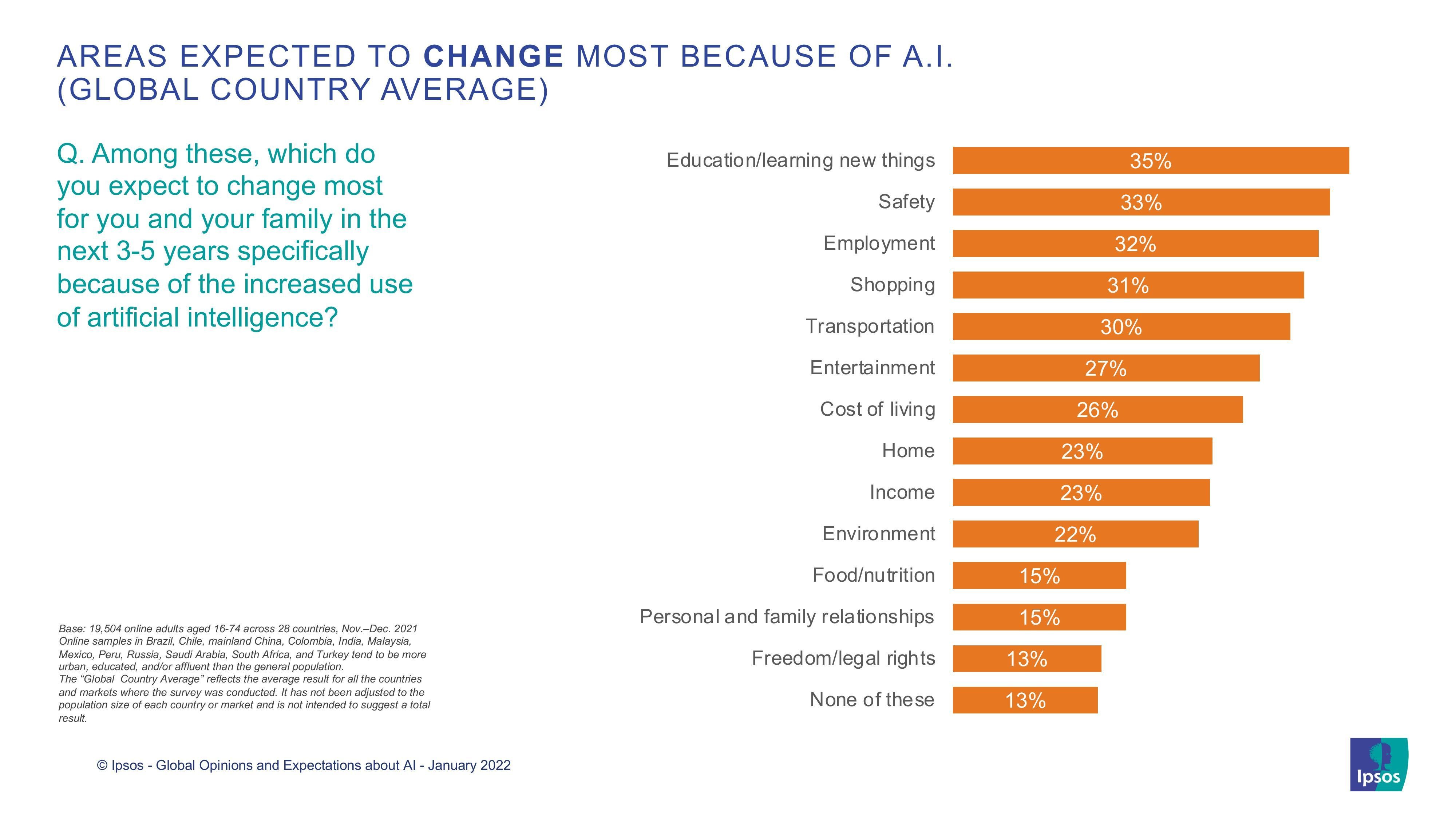 "lazy", :class=>"", :alt=>"Areas expected to change most because of AI (Global country average) "}” use_picture=”true”>
"lazy", :class=>"", :alt=>"Areas expected to change most because of AI (Global country average) "}” use_picture=”true”>
The areas expected to see the biggest change because of AI.
Image: Ipsos
But will it make life better? Those surveyed were a little less sure, with just 52% saying that products and services using artificial intelligence have more benefits than drawbacks.
However, there are areas where people think AI will improve their lives. Again, education comes top of the list, with entertainment and transportation rounding out the top three.
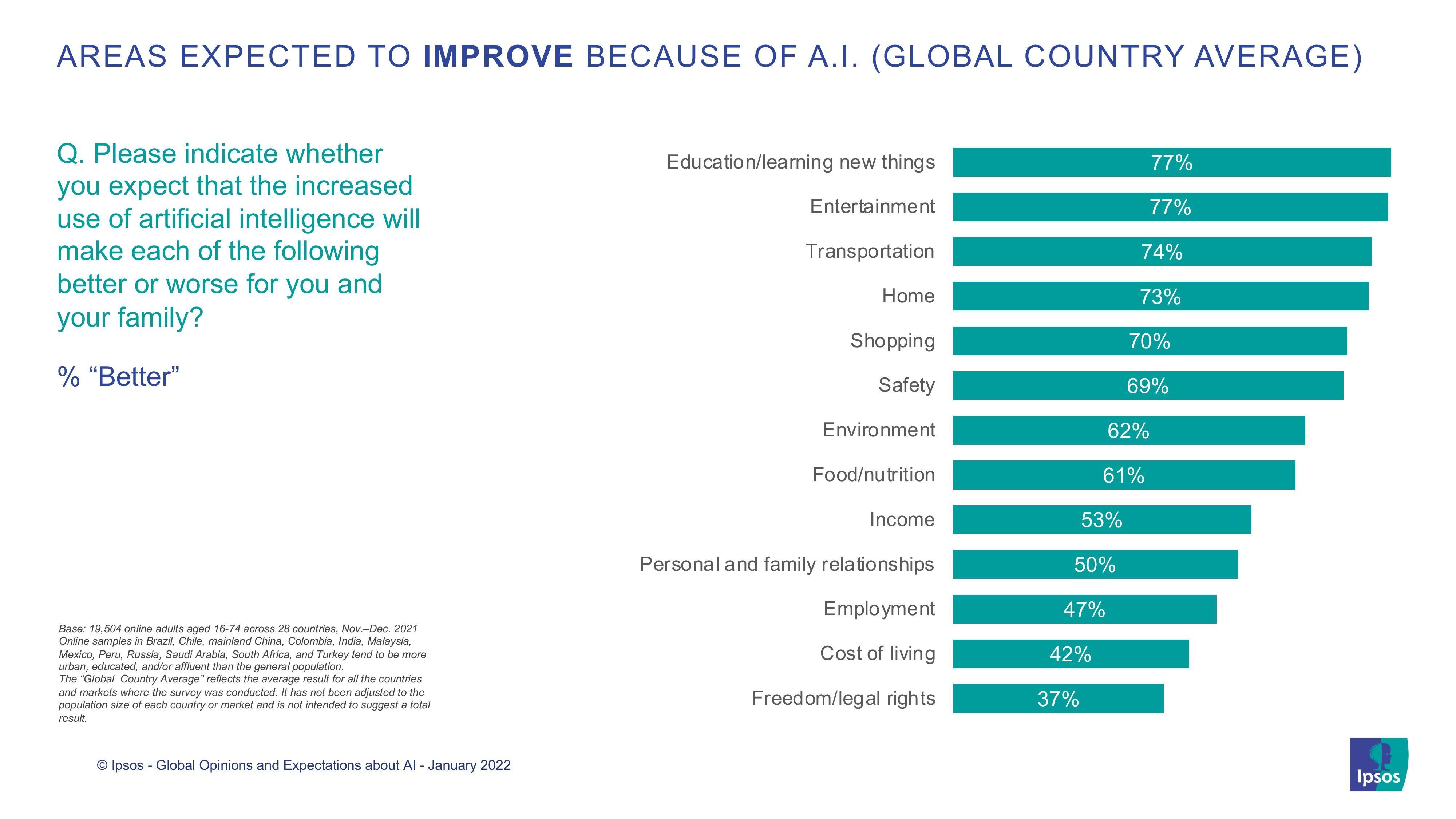 "lazy", :class=>"", :alt=>"Areas expected to improve because of AI (global country average)"}” use_picture=”true”>
"lazy", :class=>"", :alt=>"Areas expected to improve because of AI (global country average)"}” use_picture=”true”>
People expect AI to make education better for them and their families.
Image: Ipsos
Trust in AI
As the first chart shows, just half of those surveyed said they trust companies that use AI as much as they trust other companies.
The survey does point to a correlation, though, between understanding AI and trust in companies that use artificial intelligence. It also suggests a difference between emerging and high-income countries.
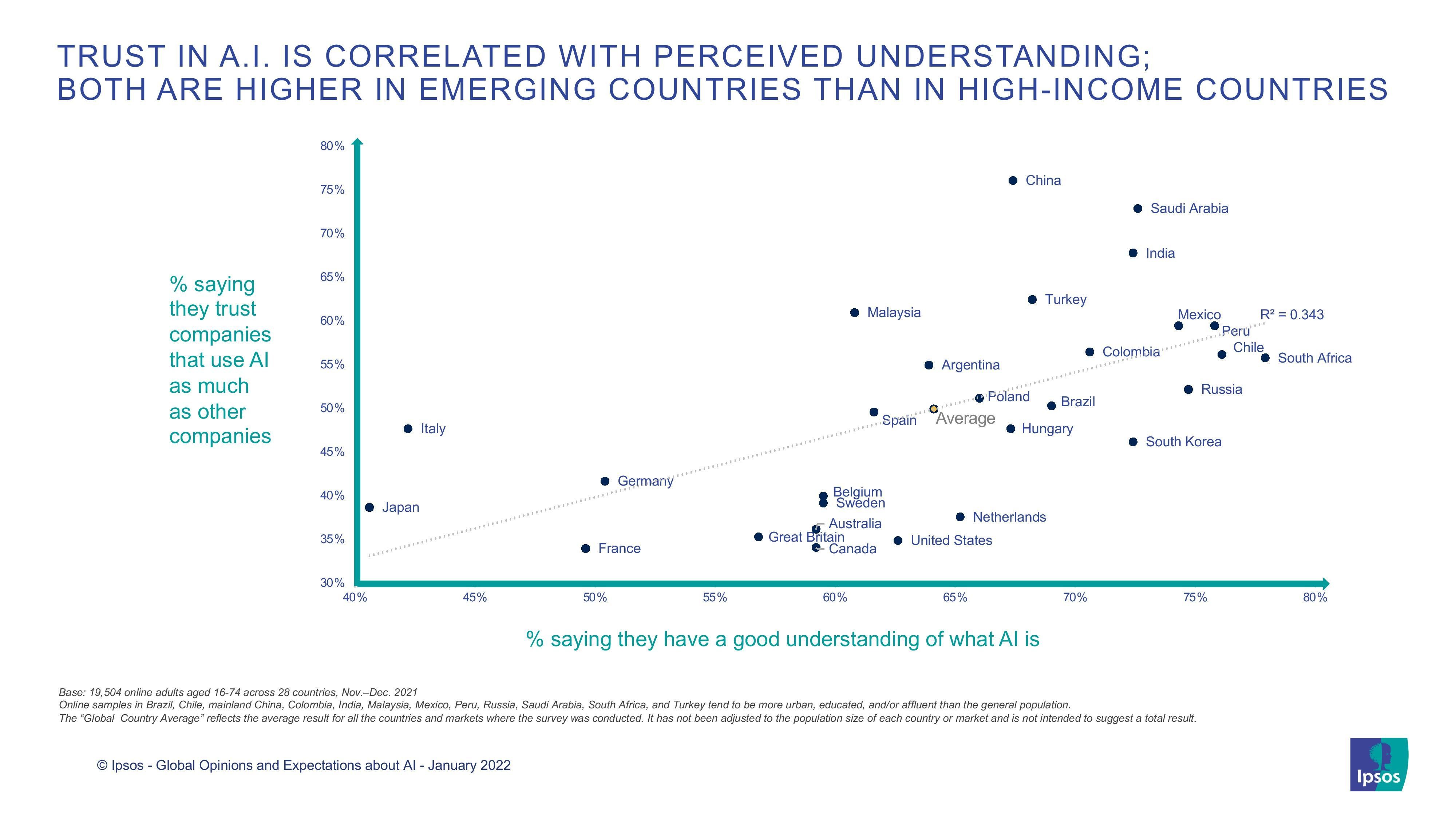 "lazy", :class=>"", :alt=>"Trust in AI is correlated with perceived understanding"}” use_picture=”true”>
"lazy", :class=>"", :alt=>"Trust in AI is correlated with perceived understanding"}” use_picture=”true”>
The public’s trust in AI is linked to levels of understanding about it.
Image: Ipsos
The World Economic Forum’s Centre for the Fourth Industrial Revolution, in partnership with the UK government, has developed guidelines for more ethical and efficient government procurement of artificial intelligence (AI) technology. Governments across Europe, Latin America and the Middle East are piloting these guidelines to improve their AI procurement processes.
Our guidelines not only serve as a handy reference tool for governments looking to adopt AI technology, but also set baseline standards for effective, responsible public procurement and deployment of AI – standards that can be eventually adopted by industries.
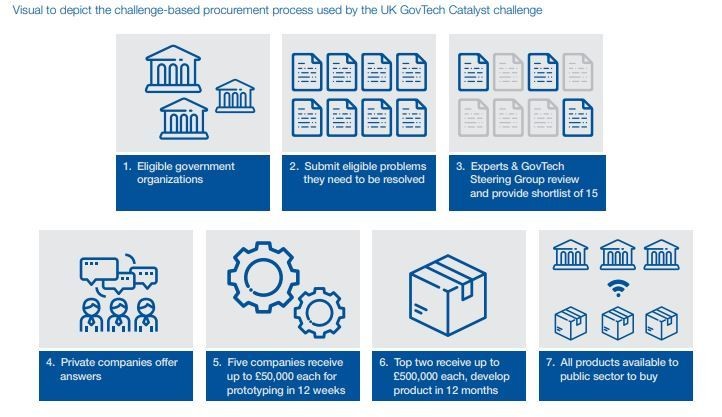 "lazy", :class=>"", :alt=>"Example of a challenge-based procurement process mentioned in the guidelines"}” use_picture=”true”>
"lazy", :class=>"", :alt=>"Example of a challenge-based procurement process mentioned in the guidelines"}” use_picture=”true”>
Example of a challenge-based procurement process mentioned in the guidelines
We invite organizations that are interested in the future of AI and machine learning to get involved in this initiative. Read more about our impact.
Country differences
It’s not the only difference between high-income and emerging economies uncovered by the survey.
Ipsos reports that citizens from emerging countries are significantly more likely than those from higher-income countries to report being knowledgeable about AI, to trust companies using AI and to have a positive outlook on the impact of AI-powered products and services in their lives.
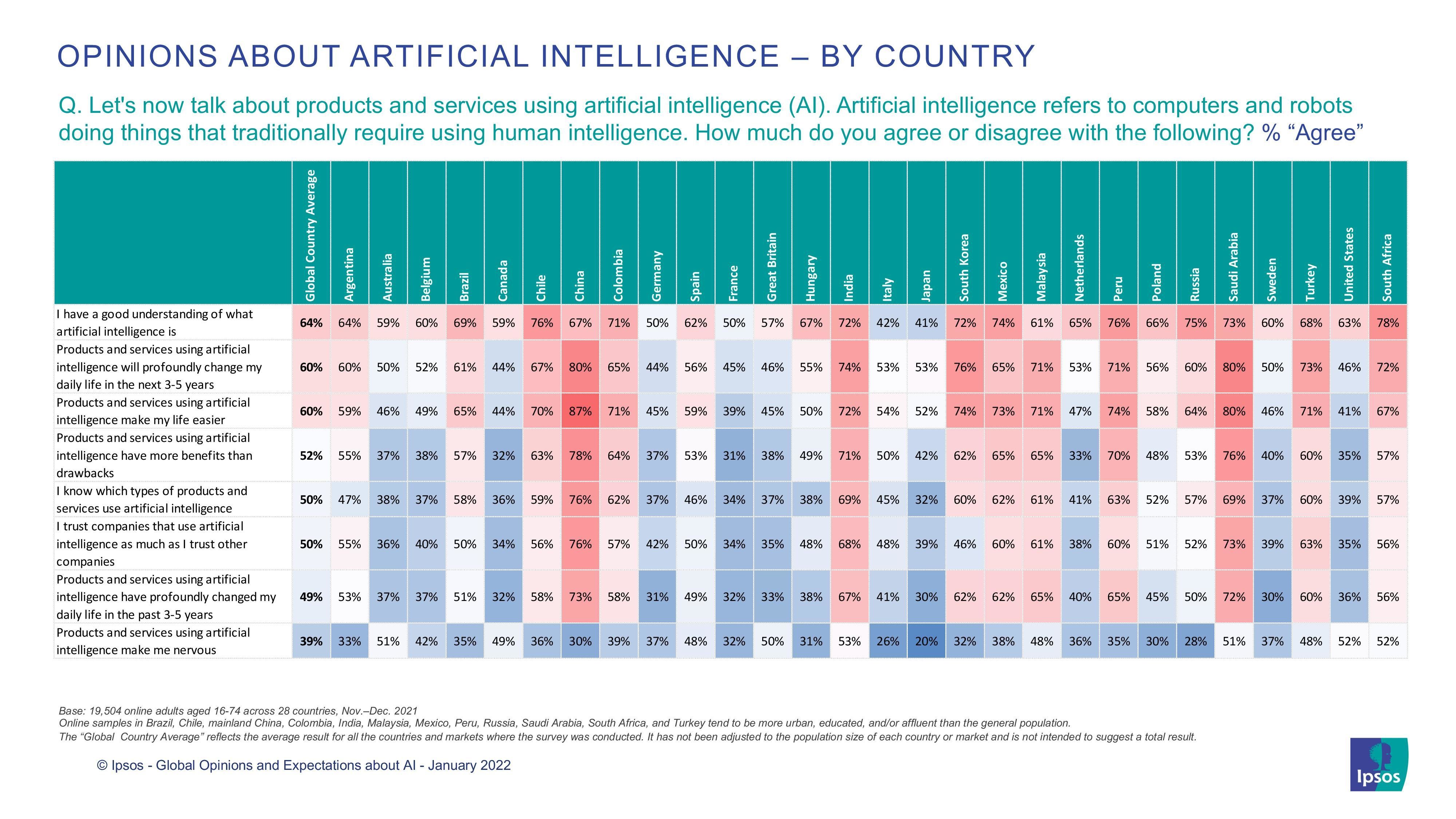 "lazy", :class=>"", :alt=>"Opinions about artificial intelligence by country"}” use_picture=”true”>
"lazy", :class=>"", :alt=>"Opinions about artificial intelligence by country"}” use_picture=”true”>
Emerging countries had a more positive outlook on AI than high-income ones.
Image: Ipsos
Ipsos surveyed 19,504 adults in 28 countries between 19 November and 3 December 2021.
License and Republishing
